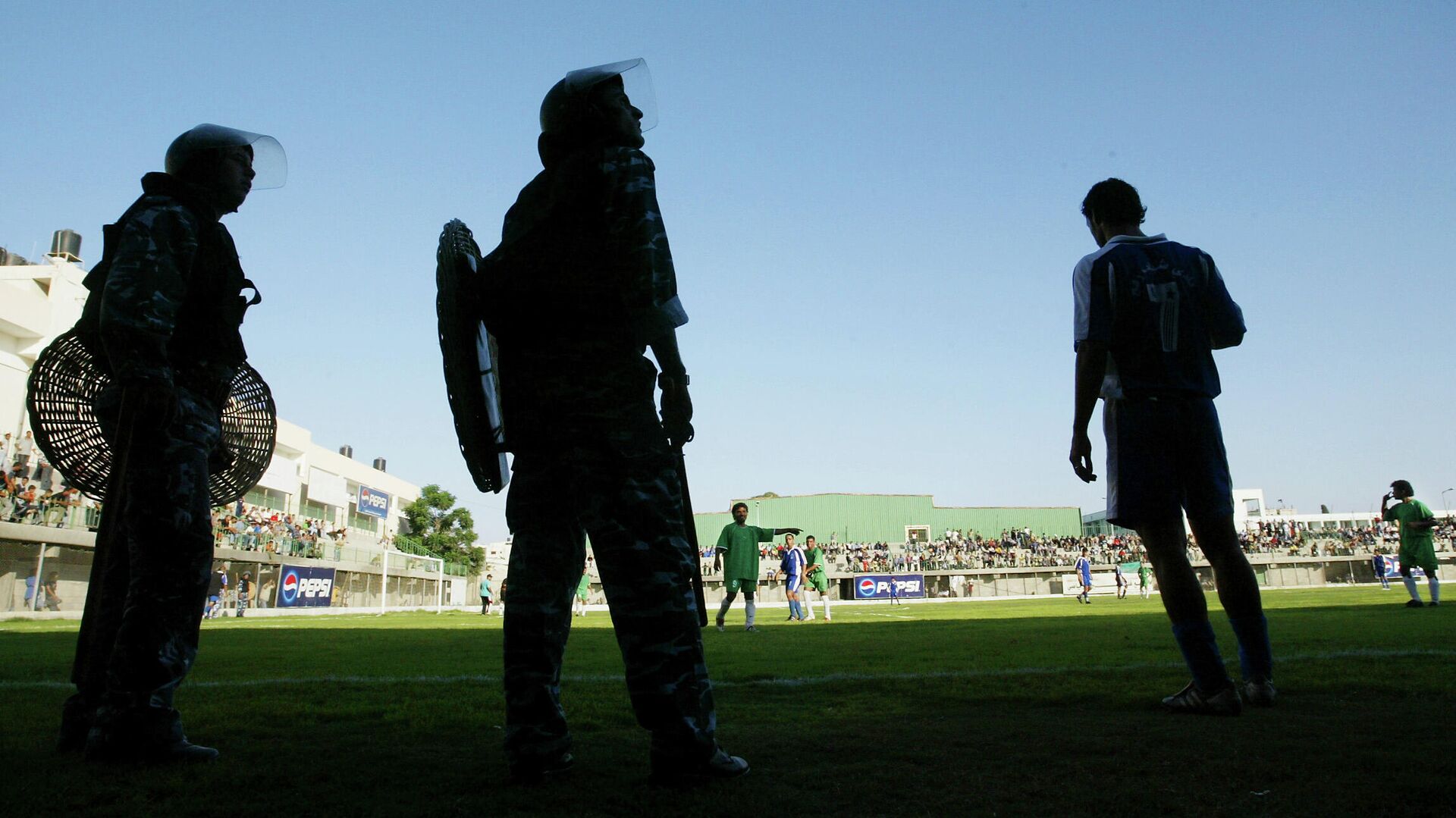Untapped Talent Pool: Can Gaza Help Its Professional Footballers Develop Their Craft?
10:09 GMT 17.02.2022 (Updated: 09:22 GMT 05.12.2023)

© AP Photo / KEVIN FRAYER
Subscribe
Aside from the total blockade, in place in the region since 2007, hampering their movement, football clubs lack the necessary funds to stay afloat. So, they often rely on donations from the Palestinian Authority, as well as regional and international grants.
Emad Hashim, a 43-year-old football coach from the club Shabab Jabalia in the Gaza Strip, has been training Palestinian youths for 20 years and he says his current team contains many stars that have the potential to launch an international career.
Hope for a Better Future
"Most boys in Gaza play football on the streets. Only a few, the talented ones, join teams to improve their skills".
Shabab Jabalia, established in 1994, currently has 26 players, aged 19 to 24.
The young men come to the club from all possible backgrounds and Hashim says the sport enables them to put their political, religious, and other differences aside.
"Here at the stadium they clear all their thoughts. They know that they come here with one goal only - the desire to win and maintain their position among other teams in the Gaza Strip".
A Far-Off Dream
This approach has yielded results and Shabab Jabalia has won many local competitions, snagging a host of medals. But participation in regional or international championships still remains a far-off dream.
Since 2007, the Gaza Strip, home to more than two million people, has been under a full Israeli blockade that was imposed to protect the Jewish state from Hamas, an Islamic group deemed a terrorist organisation by Israel.
As part of that blockade, Israeli authorities enacted restrictive measures on Gaza: they clamped down on locals leaving the enclave, narrowed the fishing zone for them, and limited the materials and products that could enter the Strip. But sporting activities have never been under restriction.
Over the years, Israel has denied entry permits to many Gazan players, citing security concerns, and that often meant teams could not participate in competitions in the West Bank. Nor could they travel to other destinations to take part in regional and international tournaments.
"I hope that one day the situation will improve. Our players need to improve their skills by exchanging experiences with other players outside of Gaza, so the opening of crossings is essential", reasoned the coach.
Yet, freedom of movement is not Gaza football's only problem. The coronavirus pandemic has also wrought havoc. With the outbreak of the virus in March 2020, local authorities closed all public institutions and private businesses. To curb the spread of COVID-19 they also banned mass gatherings, shut down gyms, and prohibited collective training sessions.
"We stopped training for two years because of COVID-19. It has negatively impacted our players. Some of them gained weight. Others decided to give up on their careers and take odd jobs to keep themselves afloat".
Depleted Funds
Gazan players earn anywhere from between $150 to $300 a month. But the continuous lockdowns prevented from them from obtaining those funds, and the result was that many were pushed into unemployment and subsequent poverty.
Hashim says that Hamas, which has been running the enclave, did not have the necessary funds to support sports in the Strip, primarily because their priorities lay elsewhere.
And this is why local sports have always been looking for other sources of income.
"Unfortunately, resources are limited in the Gaza Strip. We often get donations from local businessmen that keep us afloat", said the coach.
"But that is not enough so we take money from the National Palestinian Union of Sports [based in Ramallah - ed.], international grants, and Arab donors like Qatar. However, nothing in this business is permanent or continuous", he added.
Discussing the future of football in the region, Hashim sees many hardships and obstacles ahead, but he remains optimistic and committed to raising a new generation of Gazan footballers.
"It is great to train them and plant good thoughts inside these kids. They are like small trees that need water to grow. They need care and attention and once they have it, they will be able to grow and develop".


